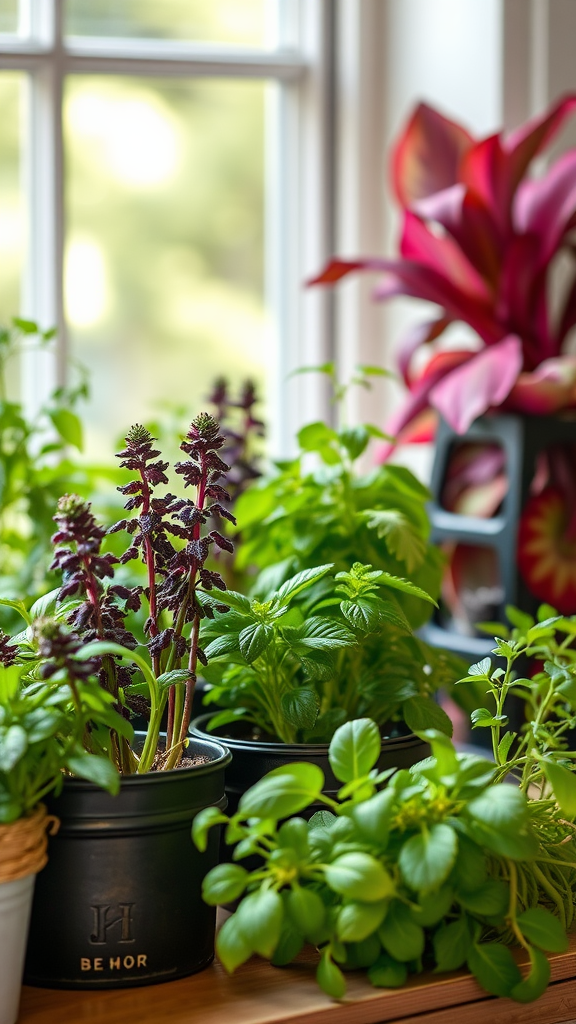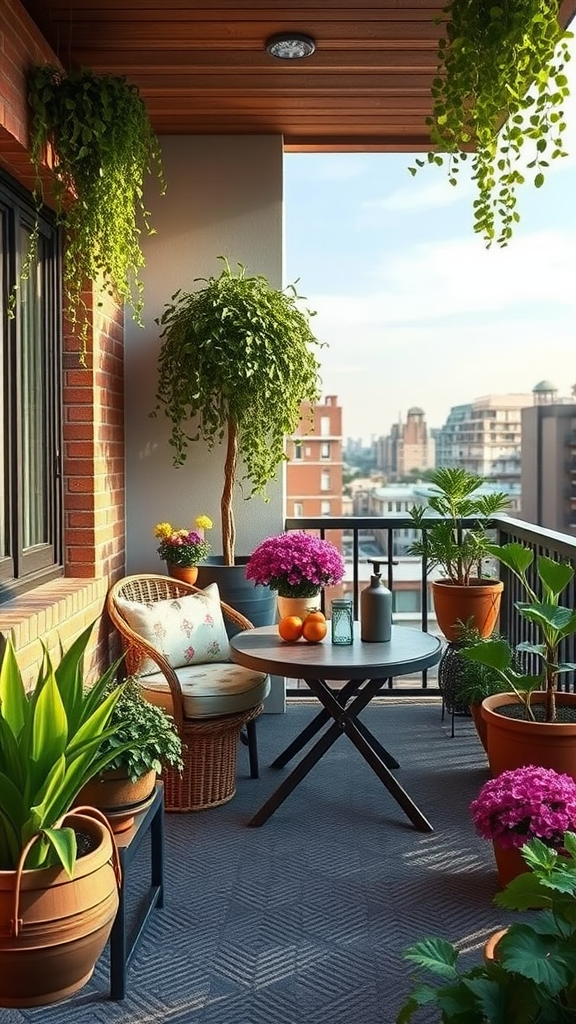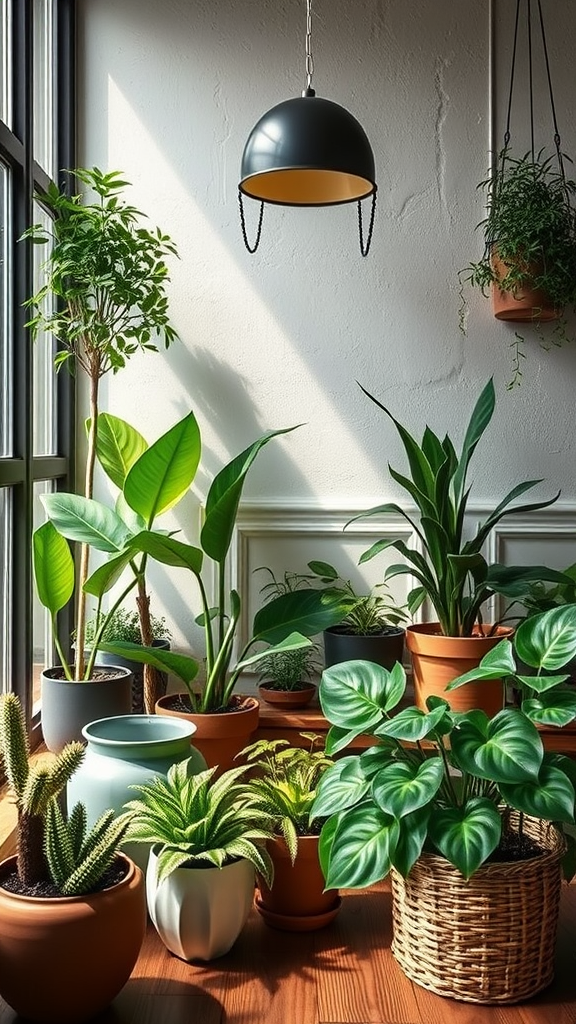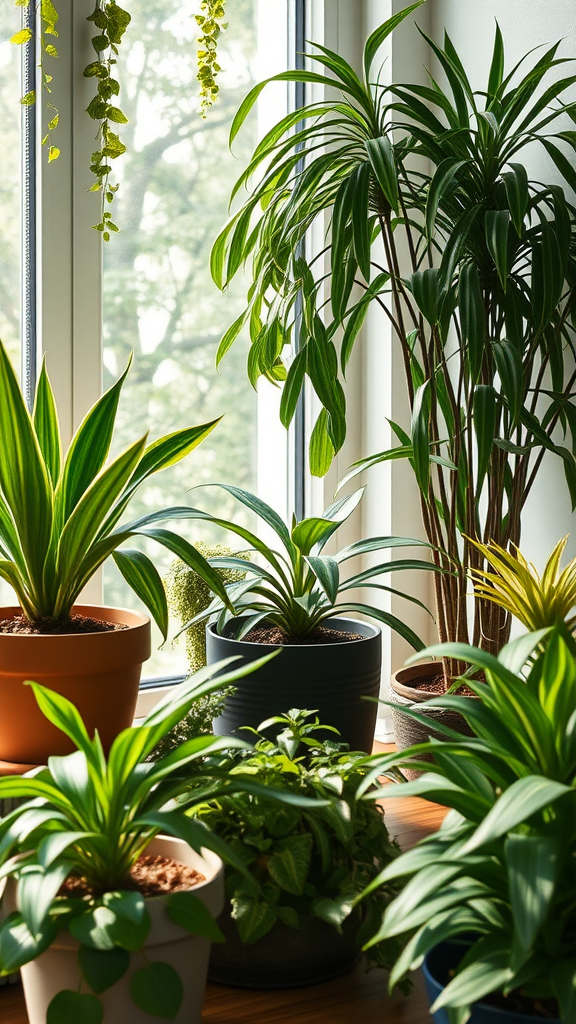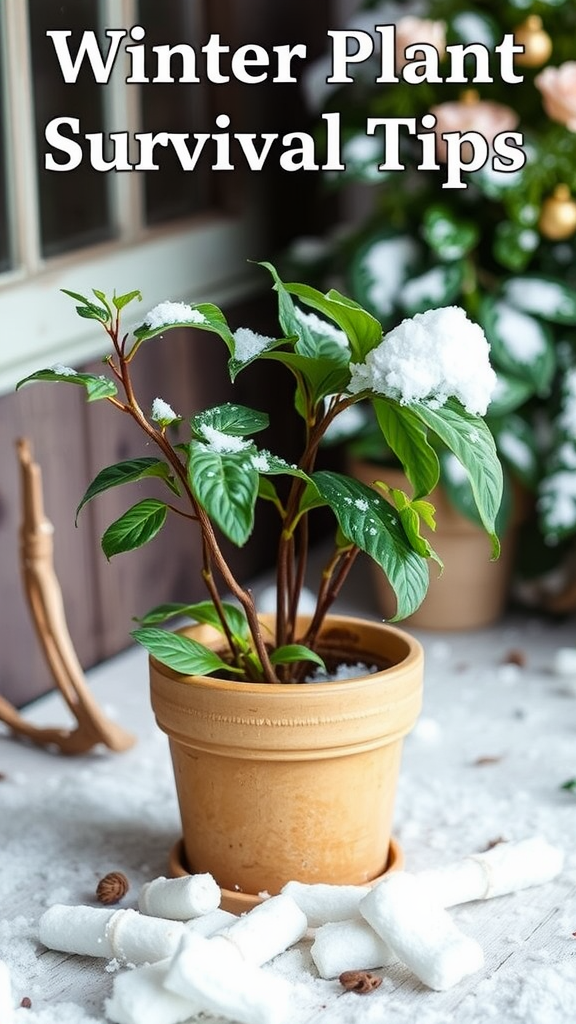The Benefits of Creating an Herb Garden at Home: Fresh Flavors and Health Perks
Imagine stepping out your back door and picking fresh herbs for your meals. An herb garden at home not only offers exquisite flavors but also numerous health benefits. Creating your own herb garden is simple and rewarding. You don’t need a lot of space or gardening experience, just some seeds, soil, and a bit of enthusiasm! Below are the benefits and insights into starting your own herb garden at home.
Fresh Flavors at Your Fingertips
One of the best parts about having an herb garden is the access to fresh herbs whenever you need them. Instead of buying dried herbs from the store, which can lose flavor over time, you can simply snip a bit from your garden. Here are some popular herbs to grow:
- Basil – Perfect for sauces and salads.
- Parsley – Great for garnishing and adding zest.
- Rosemary – A strong flavor ideal for meats.
- Thyme – Versatile for various dishes.
- Mint – Refreshing in drinks and desserts.
Having these herbs at hand allows you to enhance your dishes without any hassle, turning a simple meal into a gourmet experience.
Health Perks You’ll Love
Beyond just flavor, these herbs can contribute positively to your health. Each herb brings its own set of benefits, such as:
- Basil: Rich in antioxidants and has anti-inflammatory properties.
- Parsley: Packed with vitamins K, C, and A; beneficial for heart health.
- Rosemary: May boost memory and concentration.
- Thyme: Contains thymol, which has antimicrobial properties.
- Mint: Aids digestion and can alleviate headaches.
By incorporating fresh herbs from your garden into your daily diet, you can support your overall wellness while enjoying tasty flavors.
Easy to Care For
Creating an herb garden doesn’t require a green thumb. Many herbs are easy to care for, which makes them perfect for beginners. Here are a few tips to ensure your herbs thrive:
- Choose the Right Location: Most herbs need about 6-8 hours of sunlight daily.
- Water Wisely: Keep the soil moist but not soggy. Watering once a week usually suffices.
- Harvest Regularly: Picking leaves encourages the plant to grow more, keeping it productive.
- Use Good Soil: Quality potting soil helps prevent root diseases and gives your plants a healthy start.
With just a little attention and care, your herb garden can thrive and provide you with fresh flavors all season long.
Environmentally Friendly
Starting an herb garden at home is not just good for you; it’s also beneficial for the environment. You are reducing the need for herb transport, which means less carbon footprint. Additionally, growing your own herbs can help improve air quality. Plants naturally produce oxygen and help absorb carbon dioxide, contributing to a healthier atmosphere.
Moreover, you can avoid pesticides and chemicals often used in commercial herb production, making your homegrown herbs safer for you and your family. You will have more control over what goes into your plants, ensuring they are both clean and tasty.
A Fun and Educational Family Activity
Creating an herb garden can be a delightful project for the entire family. It offers a hands-on way for kids to learn about gardening, nature, and healthy eating. Watching herbs grow is exciting, and they can participate in planting, watering, and harvesting. This experience can spark their interest in cooking and nutrition, teaching them the value of fresh ingredients.
Moreover, growing your own herbs gives your family the chance to bond, work together, and share the joy of nurturing something from seed to table. It’s a memorable activity that goes beyond just gardening.
An herb garden at home is not just about fresh flavors; it’s a pathway to a healthier lifestyle, environmentally conscious living, and unforgettable family moments. So grab your pots, soil, and seeds, and embark on your herb gardening adventure today!
How to Start Your Own Herb Garden: Tips for Beginners
If you’ve ever dreamt of adding vibrant flavors to your dishes or a touch of green to your home, starting your own herb garden can be a delightful and rewarding experience. Homegrown herbs not only enhance your meals but also allow you to explore gardening in a manageable and enjoyable way. Let’s delve into how you can kickstart your own herb garden, keeping it simple and accessible for beginners.
Choosing the Right Location
The first step in establishing your herb garden is selecting a suitable location. Herbs thrive in plenty of sunlight, so aim for a spot that receives at least 6 to 8 hours of sunlight each day. Here are some great options:
- Windowsills
- Balconies
- Patios
- Backyards
Ensure the area has good drainage and protection from harsh winds. If outdoor space is limited, consider using pots; they can be easily moved to capture optimal sunlight.
Selecting Your Herbs
Now, it’s time to choose the herbs you want to grow. For beginners, it’s best to start with varieties that are easy to maintain. Here are some popular herbs to consider:
- Basil: Perfect for Italian dishes and pesto.
- Parsley: A versatile garnish that adds freshness.
- Mint: Great for teas and desserts.
- Chives: Adds a mild onion flavor.
- Thyme: Ideal for seasoning meats and vegetables.
Choose herbs based on your cooking preferences and the recipes you frequently enjoy. Starting with 3 to 5 varieties will allow you to manage your garden easily.
Preparing the Soil
Healthy soil is the foundation of a thriving herb garden. Use well-draining soil that allows water to flow through while retaining some moisture. You can either purchase potting mix or create your own. Here’s a simple recipe:
- 1 part peat moss
- 1 part perlite or sand
- 1 part compost
This combination provides essential nutrients while ensuring excellent drainage. When planting, make sure to loosen the soil to encourage strong root growth.
Planting Your Herbs
Once your soil is ready, it’s time to plant your herbs. For seeds, follow the package instructions regarding planting depth and spacing. If you’re using seedlings, gently remove them from their containers and plant them at the same depth they were growing previously. Ensure you water them lightly after planting to help settle the soil.
Watering and Maintenance
Proper watering is crucial for herb growth. Most herbs prefer to dry out slightly between watering. It’s best to water them thoroughly and allow excess water to drain. Here are some maintenance tips:
- Water in the morning to avoid evaporation.
- Check for pests regularly.
- Prune your herbs often to encourage growth and prevent them from becoming leggy.
Using organic fertilizers can also boost growth. Liquid fertilizers diluted to half strength work well, but over-fertilizing can lead to less flavorful herbs.
Harvesting Your Herbs
Harvesting herbs encourages further growth. When you notice your herbs are healthy and flourishing, pick them regularly. Use clean scissors to snip off stems or leaves, taking care not to remove more than one-third of the plant at a time. This practice ensures that your herbs remain productive and continue to grow.
Enjoying Fresh Herbs
The best part of growing your herb garden is using the fresh flavors in your cooking. Add basil to pasta, sprinkle chopped chives on potatoes, or blend mint into yogurt for a refreshing dip. Your homegrown herbs will not only elevate your recipes but also bring the joy of gardening right into your kitchen.
Starting your own herb garden is an enriching experience that brings fresh flavors within your reach. With the right location, careful selection of herbs, and proper maintenance, you’ll have a thriving garden that not only beautifies your home but also enhances your culinary adventures. So grab your pots, seeds, and gardening gloves, and let your herb-growing journey begin!
Conclusion
Creating an herb garden at home is not just a way to add fresh flavors to your meals; it is also a rewarding and healthy endeavor that brings numerous benefits. By growing your own herbs, you have the advantage of picking them at their peak freshness, which enhances their flavor and nutritional value. Fresh herbs can elevate everyday dishes from mundane to extraordinary and provide an endless variety of culinary options, from vibrant pestos to soothing herbal teas.
For beginners, starting an herb garden is simpler than you might think. With just a few basics, such as selecting the right herbs, ensuring proper sunlight, and maintaining suitable watering schedules, you can watch your garden flourish. There’s immense satisfaction in nurturing plants from seeds or small cuttings and seeing them grow into thriving contributors to your kitchen. Plus, herb gardening is accessible whether you have a large outdoor space or just a small windowsill.
The joy of having fresh herbs at your fingertips extends beyond taste; it promotes a healthier lifestyle. Herbs are often rich in vitamins and antioxidants while being low in calories. By integrating more freshly harvested herbs into your diet, you can take steps toward better health.
Ultimately, an herb garden at home is a delightful project that combines flavor, health, and the joy of gardening. Give it a try; you might find that these small plants bring big rewards to your kitchen and brighten your culinary adventures. So, roll up your sleeves, plant your seeds, and enjoy the incredible journey of growing your own fresh herbs right at home!

